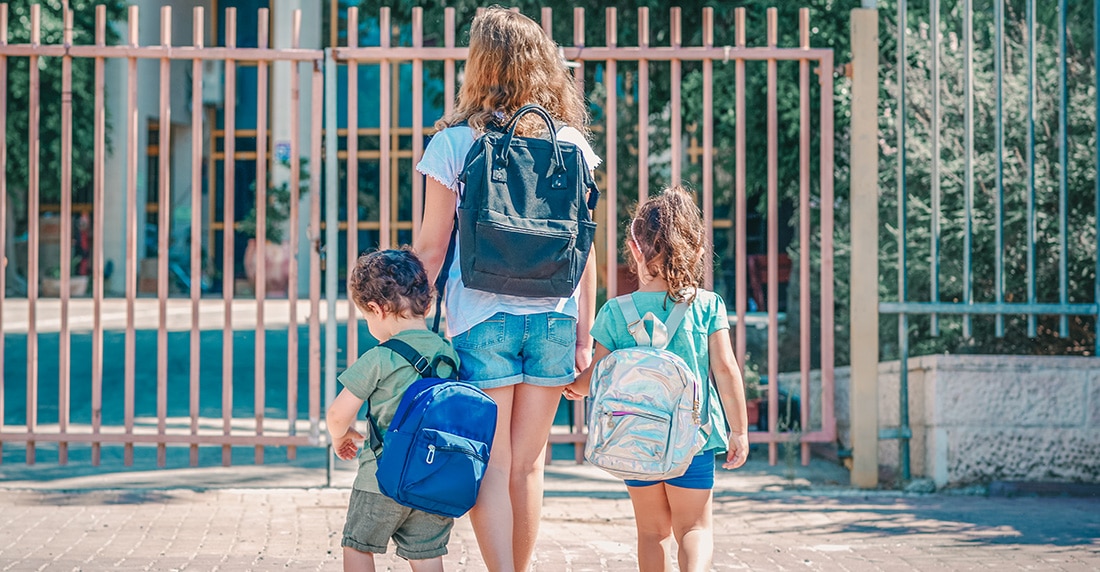The Family Law Act provides a pathway that we, as family lawyers, follow with respect to the advice that we provide about what care arrangements might be in a child’s best interests.
Naturally, there are significant variables with respect to what may or may not work for a particular child or family. Different children will react in different ways to the separation and also any potential care arrangements that are ultimately implemented.
The Australian Psychological Society, in the position paper entitled ‘Child wellbeing after parental separation’ discusses the various factors that impact upon how a child may react or deal with the separation of the parents and measures that can be taken to assist them. The above paper can be found here.
It identifies one of those factors as being the ages of the children, at the time of separation.
Taken from that paper is the following:
Infancy and the Pre-school Years (0-4)
Young children’s responses to parent separation & divorce are mediated by their limited cognitive and social competencies, their dependency on their parents, and their restriction to the home.
Infants and children younger than three years of age may reflect a caregiver’s distress and grief, and their observed behaviours may include irritability, poor sleep-wake rhythms, separation anxiety or feeding disturbances (Clark, 2013; McIntosh, 2011; Zeanah et al., 2011, 1999).
High intensity conflict, family violence and disrupted parental care appear linked to greater propensity for insecure and disorganised attachment styles (Lieberman, Zeanah, & McIntosh, 2011).
Early and middle school-age children (5–12 years)
Primary school-age children are more verbally articulate and better able to express their feelings than younger children; however, deterioration in behaviour following significant change in home life is also common amongst this age group.
They are less likely than older children to be able to understand that parents’ conflict is about divergent goals, and are more likely to be selfblaming (McIntosh, 2003).
They are likely to express anger, stress and confusion through behaviour problems, difficulties concentrating, peer problems and so on.
They often have an intense desire for their parents to get back together and may promote reconciliation at contact/access times.
If given a choice, children in this age group often have a strong focus on “making it fair” for their parents (Sadowski & McIntosh, 2015b). This may be a contributing factor to the higher prevalence of young school-aged children living in a substantially shared parenting arrangement (McIntosh, Long, & Wells, 2009).
Adolescence
Adolescents typically experience considerable initial pain and anger when their parents divorce; however they are better able to accurately assign responsibility for the divorce, to resolve loyalty conflicts, and to assess and cope with additional stresses such as economic changes and new family role definitions. Adolescents are also able to take advantage of extra-familial support systems.
Parental separation can challenge adolescents’ capacity to develop self regulated, autonomous behaviour, achieve academic and vocational goals, develop a clear sexual identity and form intimate relationships (Hetherington & Stanley-Hagan, 1999).
Some adolescents experience premature detachment from their families, which can lead to greater involvement in peer groups, often with lowered adult monitoring and more risk-taking behaviours such as early sexual activity and drug and alcohol use (Amato, 2010).
Co-parenting problems within and across households such as inconsistency in limit-setting can exacerbate challenging behaviour. Adolescents are especially sensitive to double standards and manipulation, hence parents who are dishonest, or who encourage the young person to take sides, may lose their adolescent’s respect (Rowen & Emery, 2014). Adolescents are the least likely to want to enter or maintain a substantially shared parenting arrangement (McIntosh et al., 2009).
The paper provides good insight, for those wanting to understand the various factors that impact how a child may deal with a separation. It provides valuable information as to how we may be able to deal with the separation and what comes after it, for the children, in a manner that best supports the individual needs of that child.
It is important that we, as family lawyers, not only consider the legislative pathways available to us, but also the specific circumstances of the child and/or family in crafting parenting outcomes. It is appropriate, given the nature of the factors to consider, that the input of social scientists is sought early in the discussion to ensure that those circumstances, specific to the child, are taken into account. In matters where these considerations are of particular importance, a Child Inclusive Mediation may be an appropriate ‘tool’ available to parents to have input from a qualified expert, at the time they are discussing, and attempting to resolve, matters in dispute.
Read my Blog on Child Inclusive Mediations.
WE CAN HELP
If you would like to discuss what might be the starting point for determining what is right for your child and your family following separation, please get in touch by calling 1300 246 529


